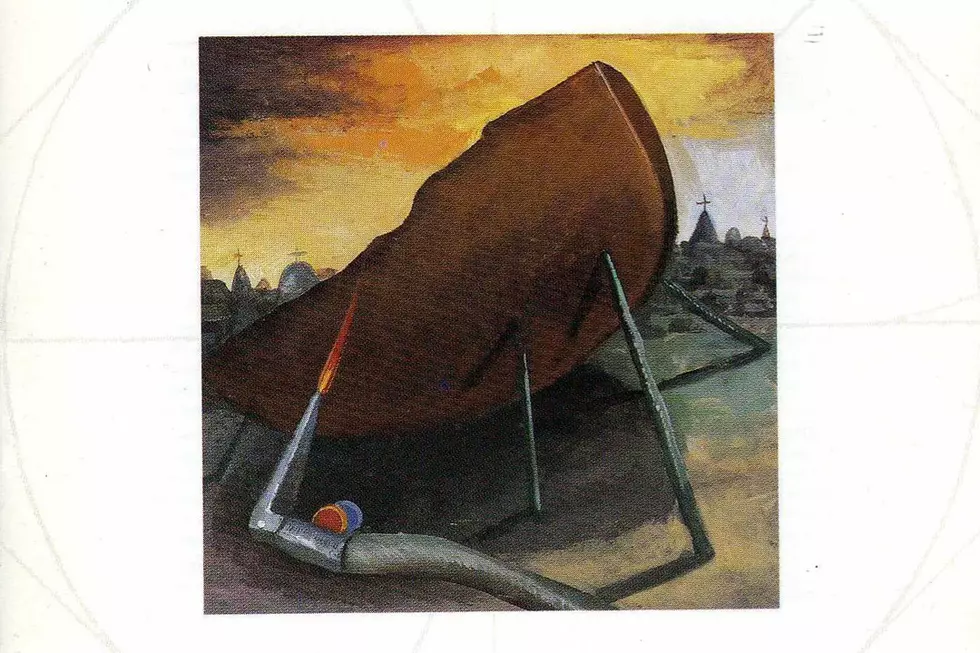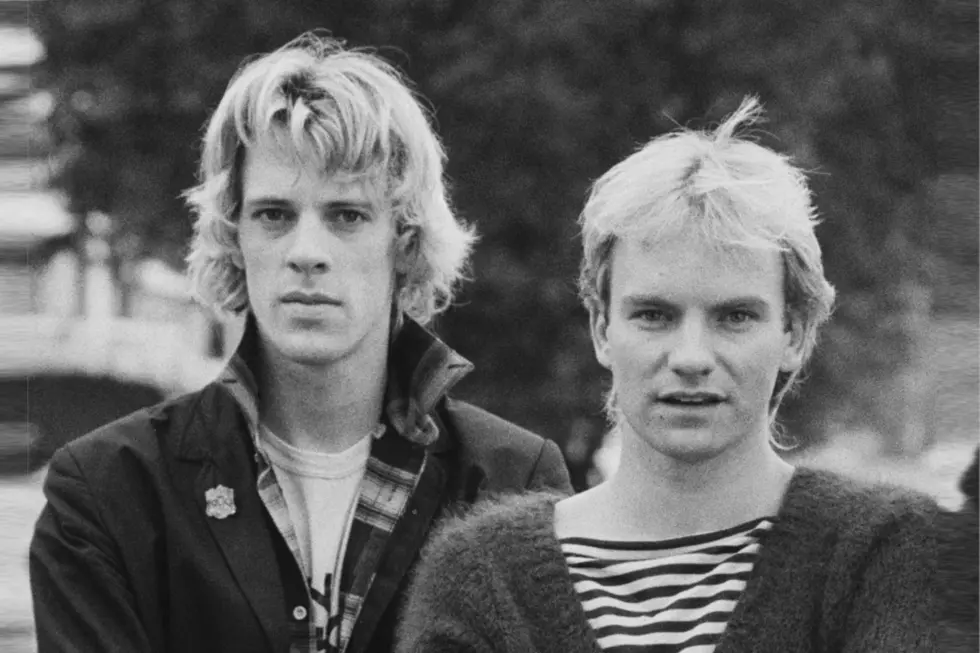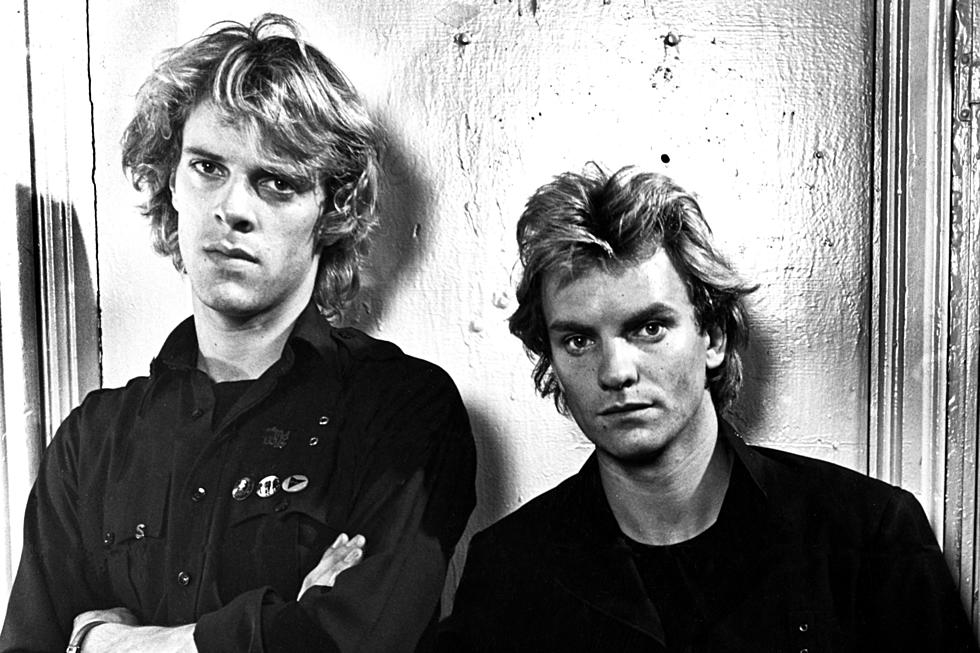
How Sting Faced Mortality on ‘The Soul Cages’
After the Police split, Sting seamlessly transitioned into a solo career and found much success with 1985's The Dream of the Blue Turtles and 1987's … Nothing Like The Sun. His third solo album, The Soul Cages, came on Jan. 22, 1991, after a three-year break – and had its origins in devastation.
"My father died in 1989," Sting wrote in his 2007 book, Lyrics. "We'd had a difficult relationship, and his death hit me harder than I'd imagined possible. I felt emotionally and creatively paralyzed, isolated, and unable to mourn. I just felt numb and empty, as if the joy had been leeched out of my life."
When he did start writing songs again, he found himself drawing inspiration from his past: "I became obsessed with my hometown and its history, images of boats and the sea, and my childhood in the shadow of the shipyards."
The album's opening track, "Island of Souls," features a protagonist named Billy – the "first son of a riveter's son" – who feels predestined to work on the ships, just like his dad, and watches with despair as an accident robs his father of life. Billy longs for safety for them both: "That night, he dreamed of the ship in the world / It would carry his father and he / To a place they could never be found."
Watch Sting Perform 'All This Time'
The tension between forward motion and cherished tradition informs the rest of The Soul Cages: the cyclical nature of life, the idea that myths (Biblical and secular) predetermine contemporary stories and the imperfect grief that follows loss. On "The Wild Wild Sea," the protagonist thinks he spots his father's face "underneath the sailor's hat."
"Why Should I Cry for You?" wrestles with a crisis of faith and emotional desolation; and the title track references the safe haven mentioned in "Island of Souls." The final song, "When the Angels Fall," is even overtly conflicted about the relationship between faith and death: "Take your father's cross / Gently from the wall / A shadow still remaining."
"That's what The Soul Cages is about in a way: working through things yourself rather than trusting in mass ideologies," Sting told Creem in 1991. "We come into the world alone and we leave alone. I mean, I'm not anti-religious, but if you believe anything wholesale, you open yourself up to a lot of perversions of the initial content. That's unhealthy. The core ideas behind ideologies are great, but invariably they get twisted. I'm not an expert; I'm just working on myself. That's the path to choose."
At the time, the Hugh Padgham-produced Soul Cages contained Sting's most fully realized music yet. The title track is a hulking dirge with an '80s AOR hangover, courtesy of Dominic Miller's sturdy electric guitar strokes, evocative sax from Branford Marsalis and organ from David Sancious. The slow-burning blues of "When the Angels Fall" has curled-toe bass, atmospheric production and occasionally sharp piano; and "Jeremiah Blues, Pt. 1" has a pronounced jazz-funk edge.
Other songs still stand tall in Sting's catalog, most notably "Mad About You" and its Spanish guitar and majestic string flourishes, and the brisk "All This Time" with its fluttering mandolin melodies.
Listen to Sting Perform 'Mad About You'
Reaction to the album was polarizing: Greg Kot of the Chicago Tribune quipped "Sting purges himself of his angst, as well as his ability to write a memorable tune," while the Dallas Morning News' Tom Maurstad said the record "is simply no fun." Sting was aware of the sometimes-vitriol reaction; in fact, as he told Mojo in 1995, "it was attacked most in England for being pretentious. The buzzword was gloomy, I think, or depressing."
Still, time has been kind to the album, and it's found an audience, as he told Q in 1996: "The recently bereaved write to me about it. There's always a market. Small, but steady. People say, 'My brother died' or 'My parents died, and the record helped me.'"
Several years later, Sting released Ten Summoner's Tales, which went multi-platinum and made him an even bigger superstar. But as he told Mojo back in 1995, he views The Soul Cages as a career pinnacle. "Maybe I'm defensive about it, but it's very heartfelt, very earnest. I couldn't get away from these ideas about my background, my father, death. I had to get them out of the way, almost as part of the mourning process, so I could then get on with writing songs for fun.
"Which is what I did on Ten Summoner's Tales, which people seemed to like much better. But that's fine. A whole body of work should reflect lots of different moods, and that was a very dark period of my life. If I was to be honest, I would have to make a very dark record."
The Top 100 Albums of the '90s
More From Ultimate Classic Rock









